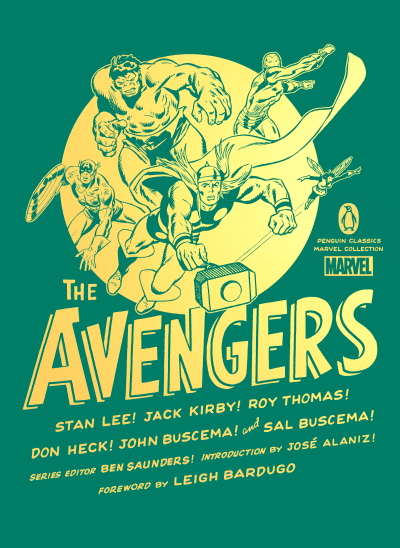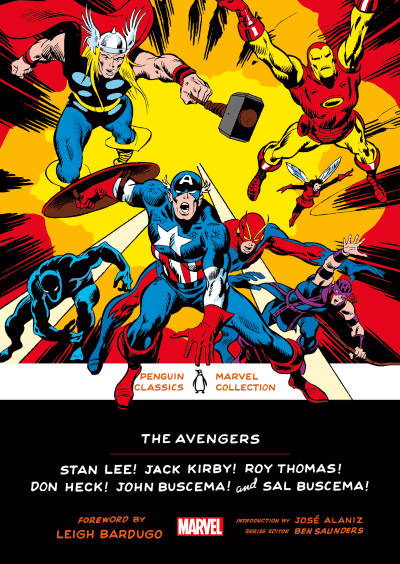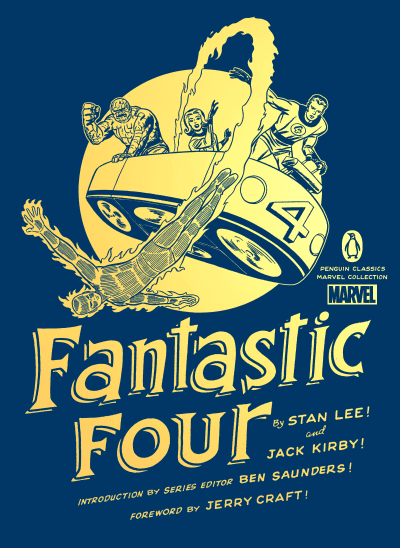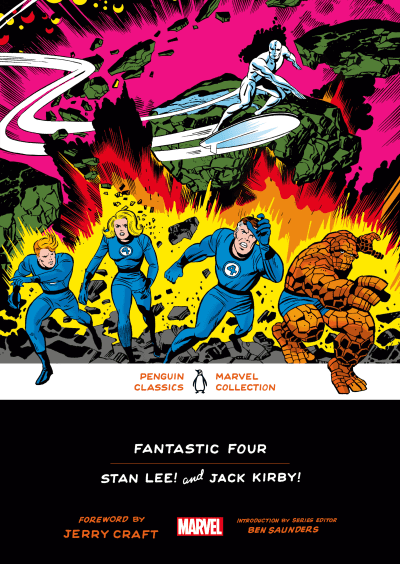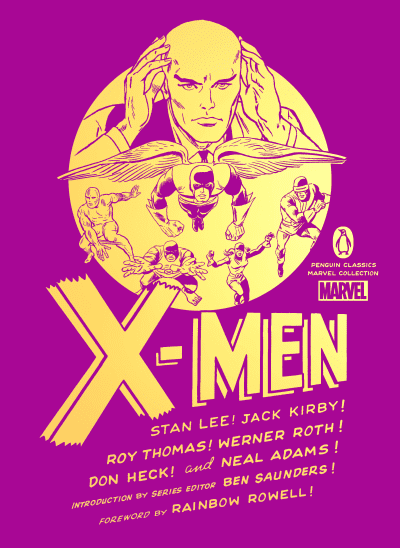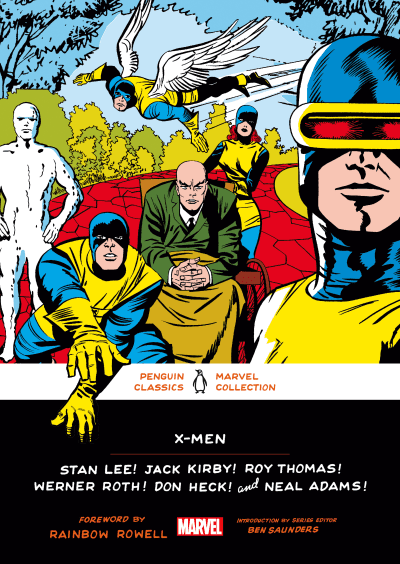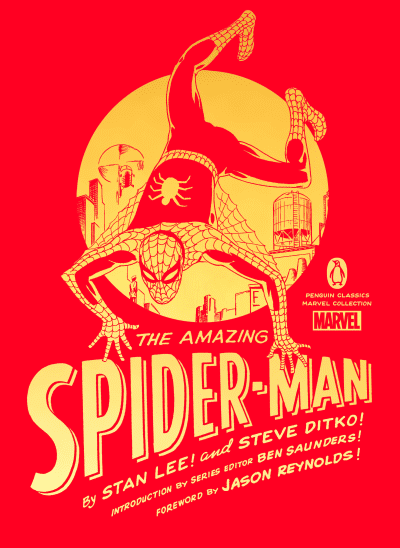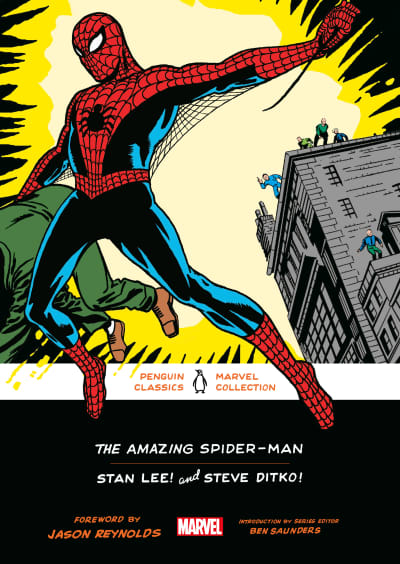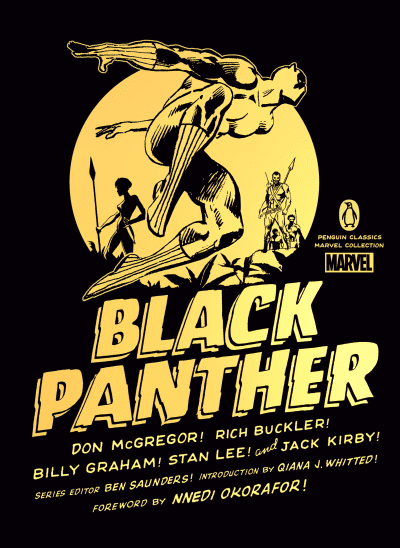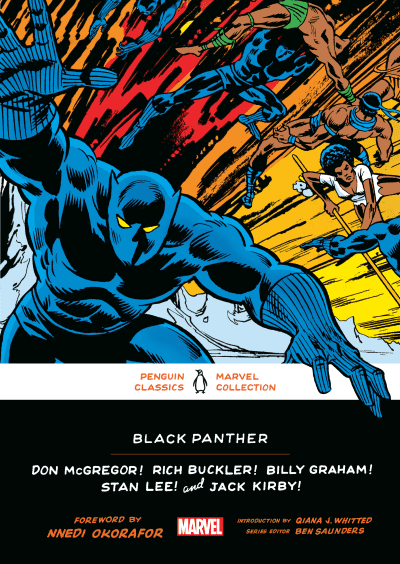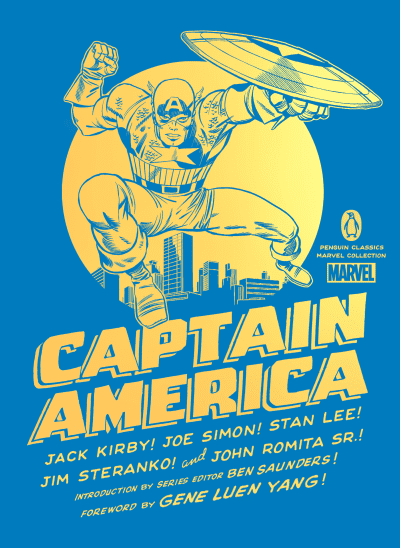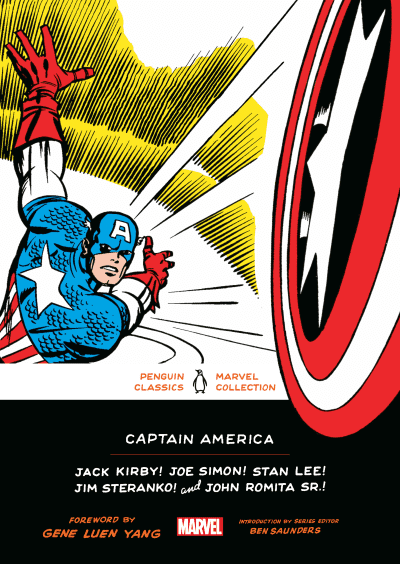

The Avengers

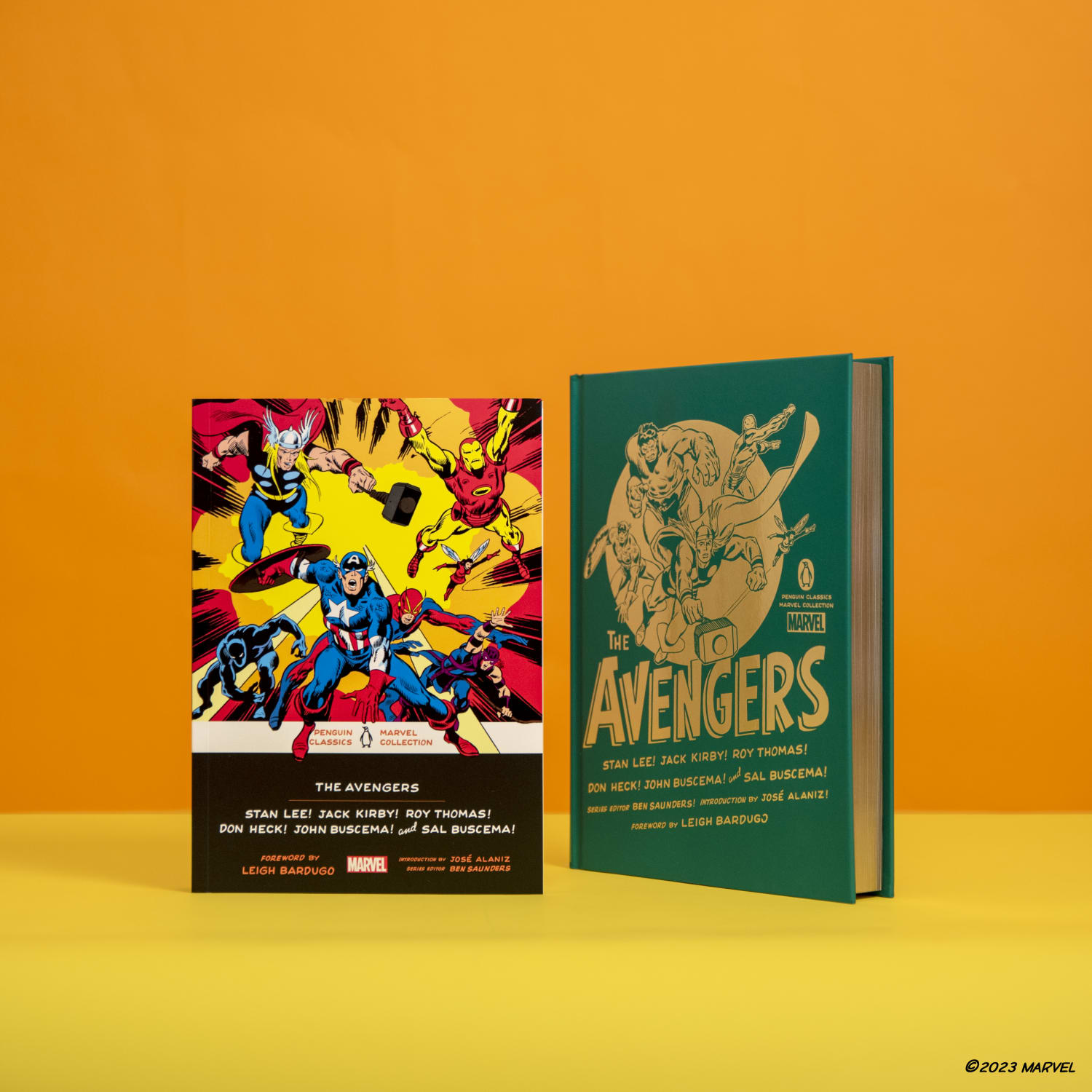
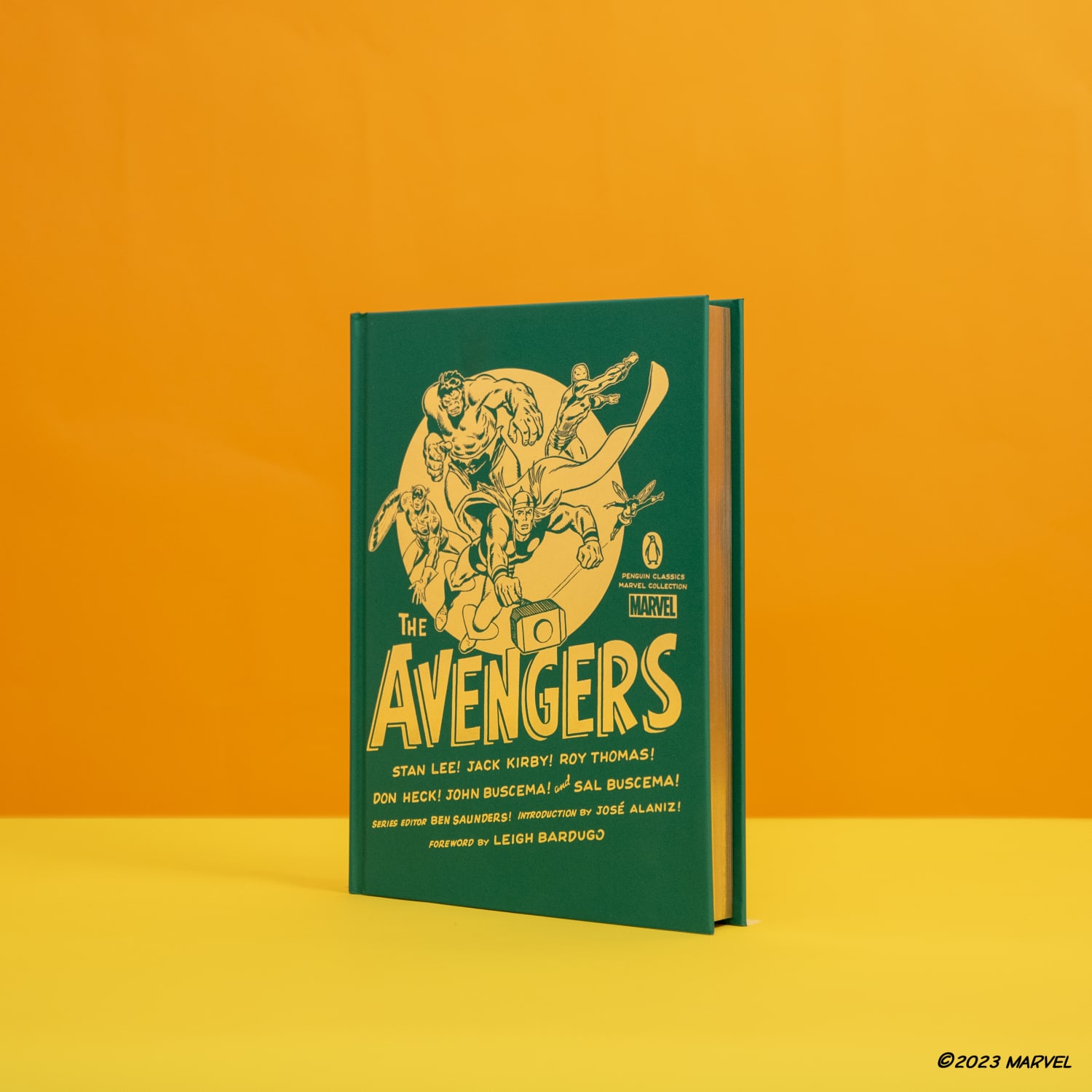


Collects The Avengers #1-4, 9, 16, 26, 28, 44, 57, 58, 71, 74, and 83.
It is impossible to imagine American popular culture without Marvel Comics. For decades, Marvel has published groundbreaking visual narratives that sustain attention on multiple levels: as metaphors for the experience of difference and otherness; as meditations on the fluid nature of identity; and as high-water marks in the artistic tradition of American cartooning, to name a few. For the first time, these classic stories of some of the most iconic super heroes in the artistic tradition of American cartooning, to name a few.
Starting in 1961, Stan Lee, Jack Kirby, and their collaborators transformed the super hero genre with a series of new creations, including the Incredible Hulk, The Mighty Thor, and The Invincible Iron Man. In 1963, Lee and Kirby brought these characters together for the first time in a new magazine called The Avengers—adding a revived Captain America shortly after. Over time the Avengers’ roster would frequently change, mirroring transformations in the Marvel Universe and the society that it reflected. This unique collection gathers key issues from the first few years of the series.
A foreword by Leigh Bardugo, a scholarly introduction by Jose Alaniz, and a series introduction by Ben Saunders offer further insights into the enduring significance of The Avengers and classic Marvel comics.
Fantastic Four


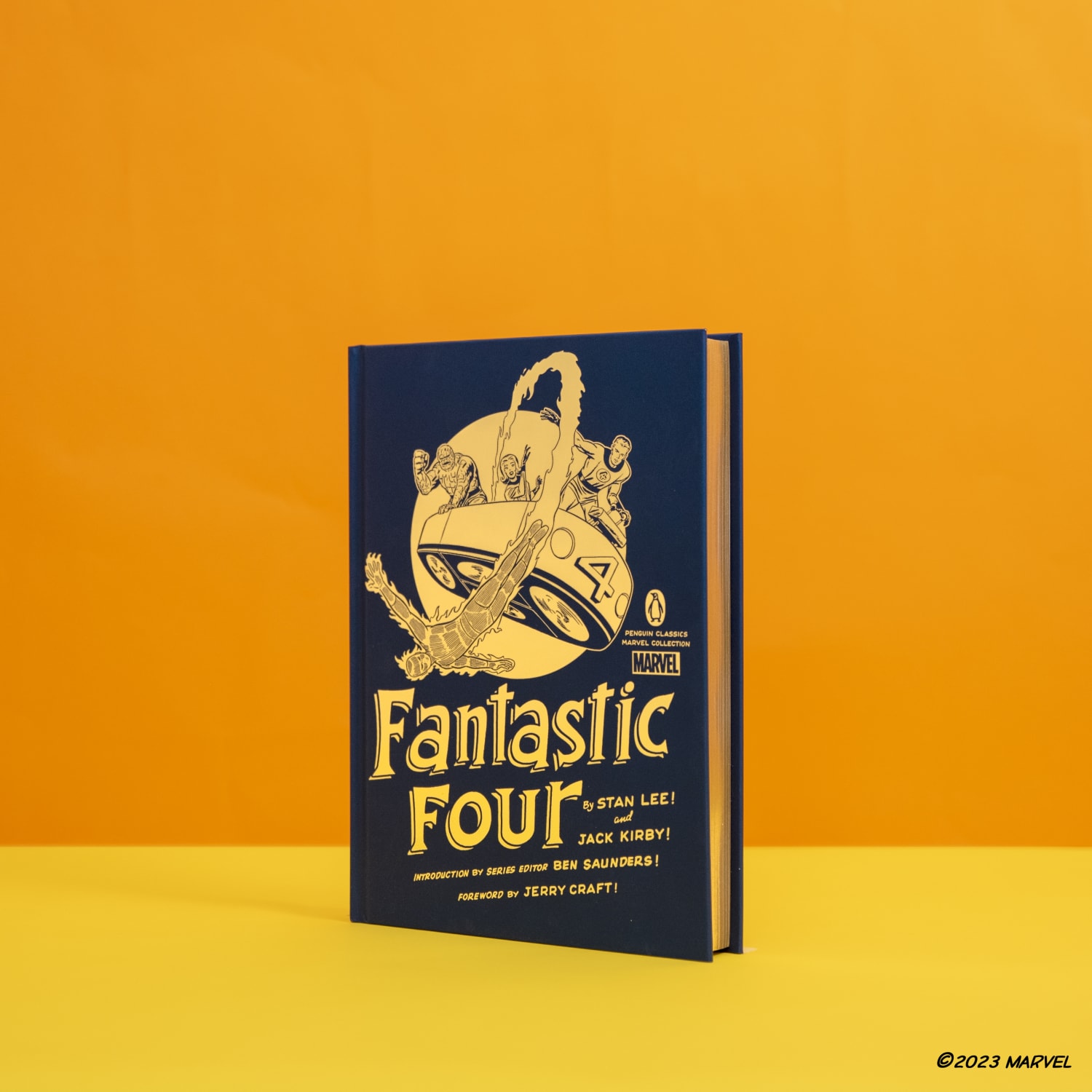


Collects Fantastic Four #1, 2, 3, 4, 5, 10, 11, 48, 49, 50, 51, and Fantastic Four Annual #6.
It is impossible to imagine American popular culture without Marvel Comics. For decades, Marvel has published groundbreaking visual narratives that sustain attention on multiple levels: as metaphors for the experience of difference and otherness; as meditations on the fluid nature of identity; and as high-water marks in the artistic tradition of American cartooning, to name a few. For the first time, these classic stories of some of the most iconic super heroes in the artistic tradition of American cartooning, to name a few.
Throughout the 1960s, The Fantastic Four doubled as both the flagship title and the creative laboratory of the Marvel Universe. Stan Lee and Jack Kirby introduced dozens of new characters and concepts in its pages, while expanding the emotional bandwidth and visual vocabulary of the super hero genre with every issue. This collection gathers some key tales from Lee and Kirby’s lengthy tenure—from their first experiments in generic hybridity through to the remarkable fusion of the cosmic and the quotidian that is the “The Galactus Trilogy.”
A foreword by Jerry Craft, and a scholarly introduction and a general series introduction by Ben Saunders offer further insights into the enduring significance of the Fantastic Four and classic Marvel comics.



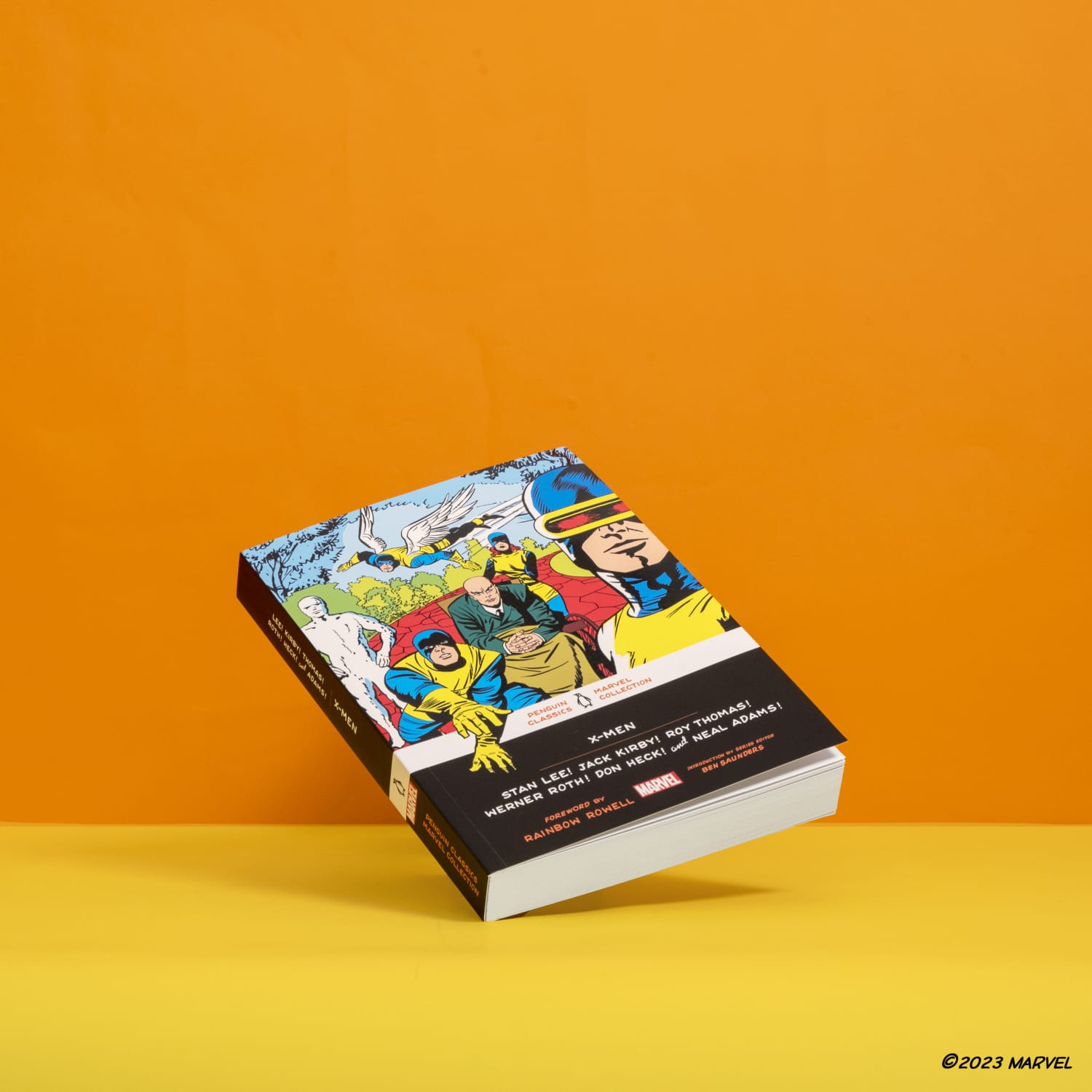

Collects X-Men #1, 3, 4, 5, 7, 8, 14, 15, 16, 38, 41, 42, 44, 45, and 46.
It is impossible to imagine American popular culture without Marvel Comics. For decades, Marvel has published groundbreaking visual narratives that sustain attention on multiple levels: as metaphors for the experience of difference and otherness; as meditations on the fluid nature of identity; and as high-water marks in the artistic tradition of American cartooning, to name a few.
The seeds of a pop-cultural phenomenon were sown with the launch of the first X-Men comic in 1963, at the height of “the Marvel Revolution,” under the creative team of Stan Lee and Jack Kirby. The title was bookended by some of the best Super Hero comics of that era; the first issue established a creative formula that continues to inspire contemporary creators, while the final issues remain acclaimed for the groundbreaking artwork of Neal Adams. This collection gathers several key tales from the original run of the classic X-Men series.
A foreword by Rainbow Rowell and scholarly introductions and apparatus by Ben Saunders offer further insight into the enduring significance of the X-Men and classic Marvel comics.
The Amazing Spider-Man




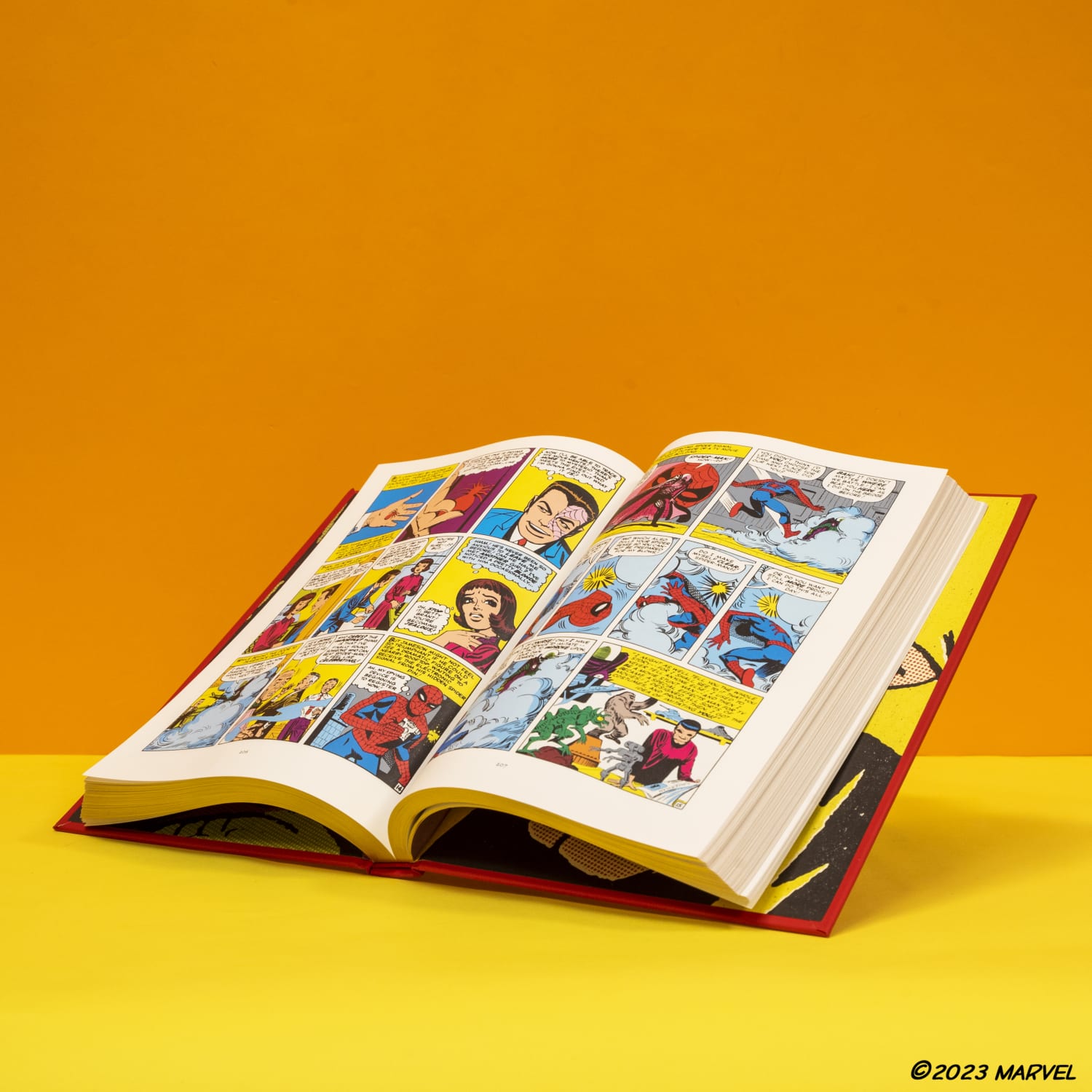
Collects “Spider-Man!” from Amazing Fantasy #15 (1962); The Amazing Spider-Man #1-4, #9, #10, #13, #14, #17-19 (1963-1964); “Goodbye to Linda Brown” from Strange Tales #97 (1962); “How Stan Lee and Steve Ditko Create Spider-Man!” from The Amazing Spider-Man Annual #1 (1964).
This anthology contains twelve key stories from the first two years of Spider-Man’s publication history (from 1962 to 1964). These influential adventures not only transformed the super hero fantasy into an allegory for the pain of adolescence but also brought a new ethical complexity to the genre—by insisting that with great power there must also come great responsibility.
A foreword by Jason Reynolds and scholarly introductions and apparatus by Ben Saunders offer further insight into the enduring significance of The Amazing Spider-Man and classic Marvel comics.
Black Panther


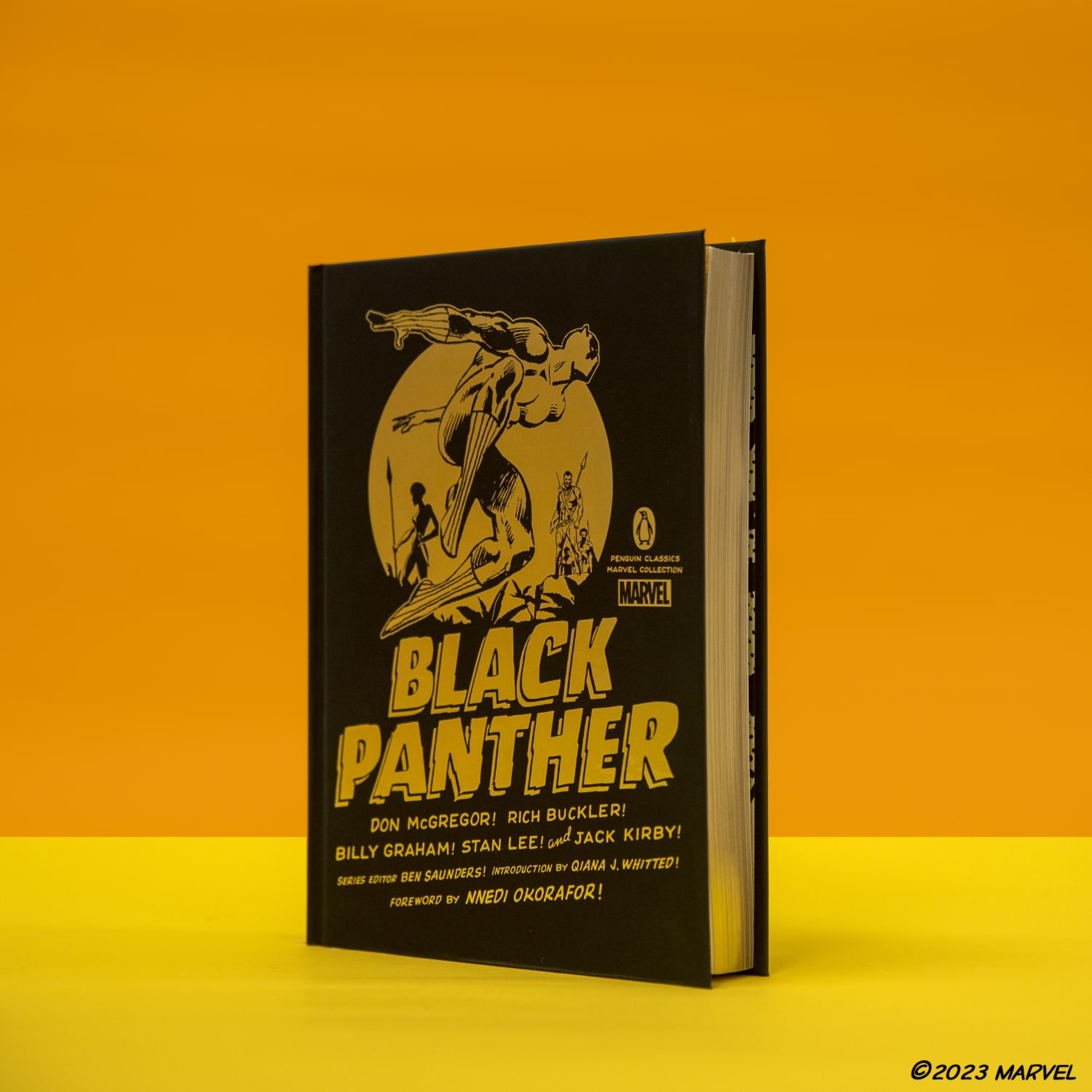


The Black Panther is not just a super hero; as King T’Challa, he is also the monarch of the hidden African nation of Wakanda. Combining the strength and stealth of his namesake with a creative scientific intelligence, the Black Panther is an icon of Afro-futurist fantasy. This new anthology includes the Black Panther’s 1966 origin tale and the entirety of the critically acclaimed “Panther’s Rage” storyline from his 1970s solo series.
A foreword by Nnedi Okorafor, a scholarly introduction and apparatus by Qiana J. Whitted, and a general series introduction by Ben Saunders offer further insight into the enduring significance of Black Panther and classic Marvel comics.
Captain America

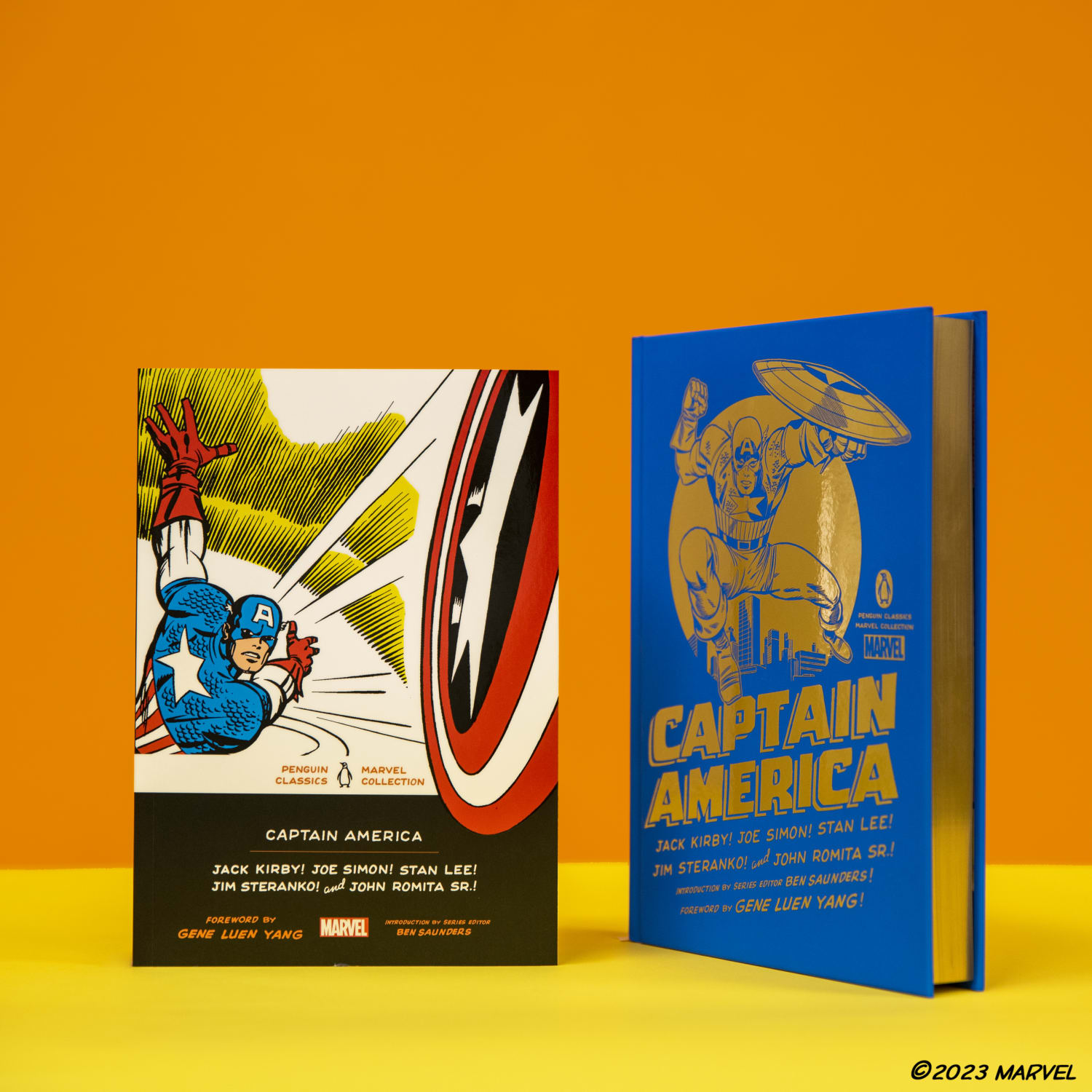


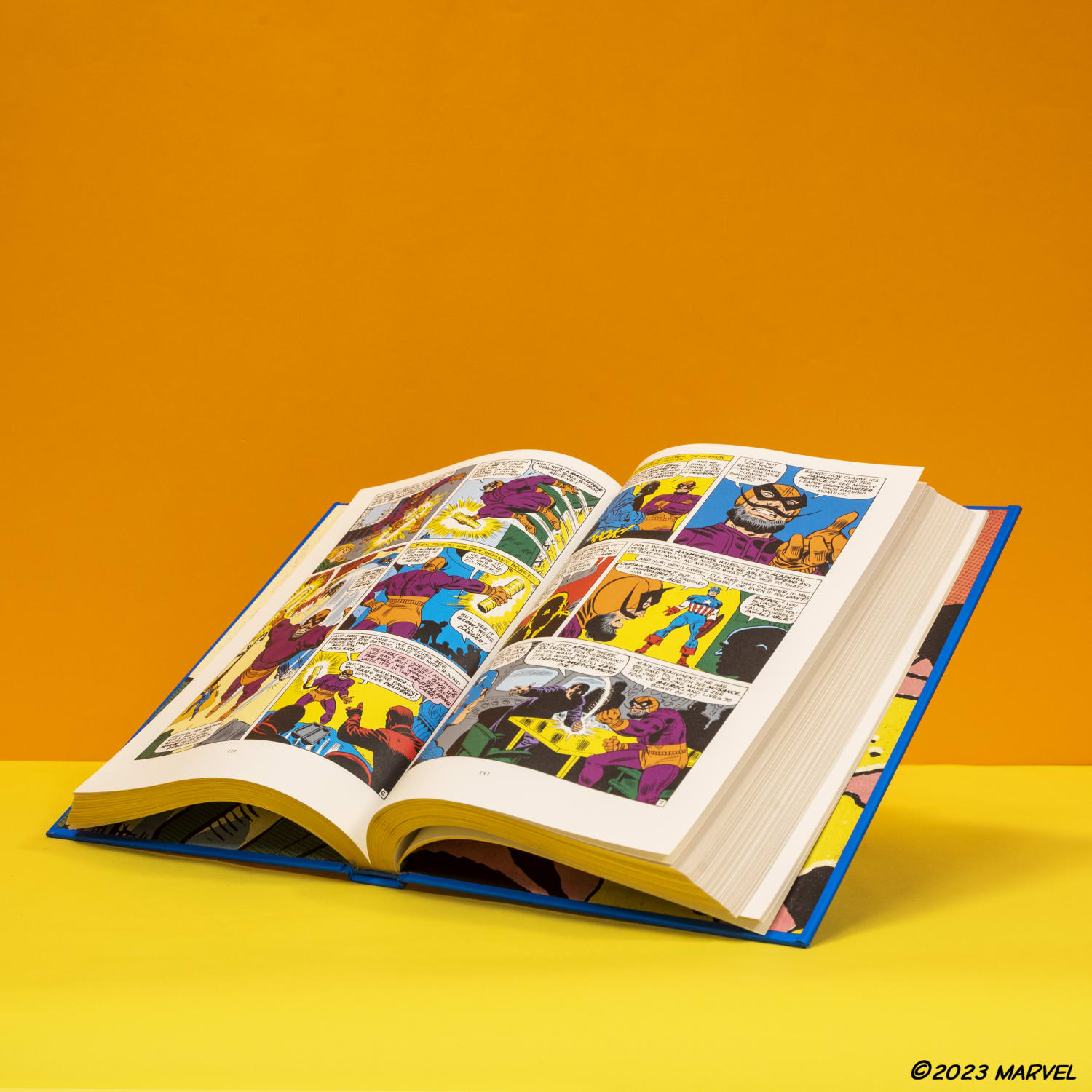
Collects Captain America Comics #1 (1941); the Captain America stories from Tales of Suspense #59, #63-68, #75-81, #92-95, #110-113 (1964-1969); “Captain America…Commie Smasher” from Captain America #78 (1954).
Drawing upon multiple comic book series, this collection includes Captain America’s very first appearances from 1941 alongside key examples of his first solo stories of the 1960s, in which Steve Rogers, the newly resurrected hero of World War II, searches to find his place in a new and unfamiliar world. As the contents reveal, the transformations of this American icon thus mark parallel transformations in the nation itself.
A foreword by Gene Luen Yang and scholarly introductions and apparatus by Ben Saunders offer further insight into the enduring significance of Captain America and classic Marvel comics.
Download the designed discussion guide for materials to help foster thoughtful conversation around the Penguin Classics Marvel Collection
Stay in Touch
By clicking Sign Up, I acknowledge that I have read and agree to Penguin Random House's Privacy Policy and Terms of Use and understand that Penguin Random House collects certain categories of personal information for the purposes listed in that policy, discloses, sells, or shares certain personal information and retains personal information in accordance with the policy. You can opt-out of the sale or sharing of personal information anytime.
